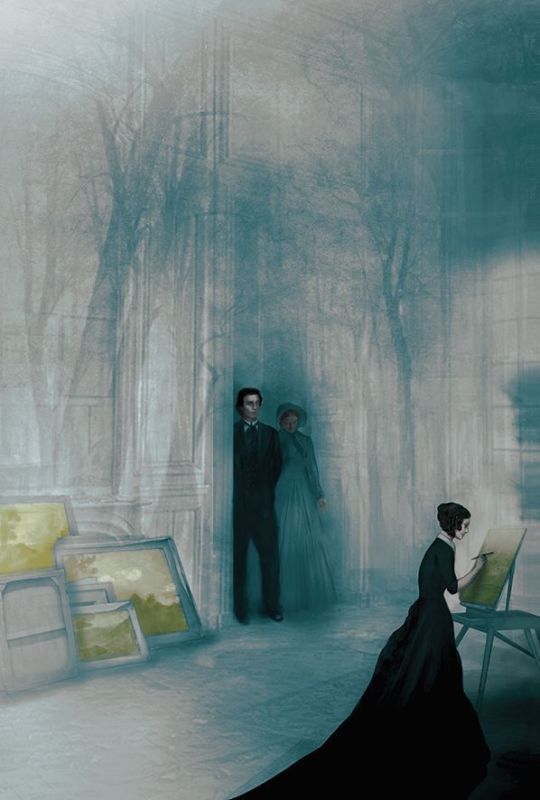#Gilbert Markham
Explore tagged Tumblr posts
Text

#mr rochester#heathcliff#gilbert markham#m. paul emmanuel#jane eyre#wuthering heights#the tenant of wildfell hall#villette#charlotte bronte#anne brontë#emily bronte#edward fairfax rochester
941 notes
·
View notes
Text
John Thornton 🤝 Gilbert Markham
Mistaking his love interest's brother for a lover, proceeding to go crazy with jealousy and to question his love interest's virtue.
Bonus points if said brother gets a whiplash on the head.
#john thornton#gilbert markham#north and south#the tenant of wildfell hall#elizabeth gaskell#anne brontë
30 notes
·
View notes
Text
(...) Cupid's arrows not only had been too sharp for me, but they were barbed and deeply rooted, and I had not yet been able to wrench them from my heart.
By Anne Brontë, from The Tenant of Wildfell Hall
#anne bronte#the tenant of wildfell hall#bronte sisters#literature#classic literature#classic lit quotes#literature academia#classic academia#classic academia aesthetic#academia aesthetic#romantic academia#romantic academia aesthetic#dark acamedia#dark academia aesthetic#book quotes#gilbert markham#helen graham
128 notes
·
View notes
Text
a young james mcgraw brings you a border collie puppy
#save me old bbc adaptations#james mcgraw#black sails#toby stephens#james flint#captain flint#loml#the tenant of wildfell hall#gilbert markham
59 notes
·
View notes
Text






Helen, Gilbert and Arthur in "The Tenant of Wildfell Hall" 1968 version (left) and 1996 version (right).
Both of these versions were produced and aired on BBC. These are the only TV adaptations of said title.
#the tenant of wildfell hall#anne bronte#anne brontë#tenant of wildfell hall#the tenant of wildfell hall 1968#tenant of wildfell hall 1968#the tenant of wildfell hall 1996#tenant of wildfell hall 1996#janet munro#tara fitzgerald#bryan marshall#toby stephens#corin redgrave#rupert graves#helen graham#gilbert markham#arthur hundington
37 notes
·
View notes
Text
Gilbert Markham would definitely wear this:

#not sure if anyone has already done that#the tenant of wildfell hall#anne brontë#anne bronte#gilbert markham#he may have some issues but i love him
32 notes
·
View notes
Text
Just noticed this parallel in The Tenant of Wildfell Hall.
From Helen's POV:
"Who told you so, my dear? What was that story about his intrigue with a married lady - Lady who was it - Miss Wilmot herself was telling you the other day?"
"It was false - false!" I cried. "I don't believe a word of it."
"You think, then, that he is a virtuous, well-conducted young man?"
"I know nothing positive respecting his character. I only know that I have heard nothing definitive against it - nothing that could be proved, at least; and till people can prove their slanderous accusations, I will not believe them." (Ch. 17)
From Gilbert's POV:
"Did I not know Mrs Graham? Had I not seen her, conversed with her time after time? Was I not certain that she, in intellect, in purity and elevation of soul, was immeasurably superior to any of her detractors; that she was, in fact, the noblest, the most adorable, of her sex I had ever beheld, or even imagined to exist? Yes, and I would say with Mary Millward (sensible girl as she was) that if all the parish, ay, or all the world should din these horrible lies in my ears, I would not believe them; for I knew her better than they." (Ch.9).
I thought this was a very interesting parallel. When they fall deeply in love for the first time, Gilbert and Helen both defend their respective beloveds in almost identical ways. They’re both angered when the slightest aspersions are cast on the characters of those they love. Both stuff their fingers in their ears, rise to their defence, refuse to believe anyone who speaks ill of them. And this blind faith leads to two drastically different outcomes. For Gilbert, his faith in her is a vindication. For Helen, it results in six years of abuse and suffering.
Which makes me wonder... what point was Anne Brontë trying to make?
30 notes
·
View notes
Text

#meme#gilbert markham#gilbert blythe#anne of green gables#anne bronte#the tenant of wildfell hall#wildfell weekly#l.m. montgomery#books#literature#classic lit#anne x gilbert#shirbert#helen x gilbert#anne shirley#helen graham
103 notes
·
View notes
Text
The victorian urge to kiss the hand of a woman who doesn't want me.
7 notes
·
View notes
Text
I cannot BELIEVE Tenant of Wildfell Hall isn't more popular in classic lit/feminist circles. Rochester WHO?! Heathcliff WHAT?? Gilbert Markham is the only man I am aware of !!
#tenant#tenant of wildfell hall#anne bronte#bronte sisters#gilbert markham#helen graham#helen huntington#classic lit#classic literature#gothic literature#literature#dark academia
54 notes
·
View notes
Text
On a scale of Gilbert Markham to John Thornton, how well does your hero take seeing the woman he loves with another man he assumes is her lover, when in actuality it's her estranged brother named Frederick?
#me#personal#north and south#john thornton#elizabeth gaskell#the tenant of wildfell hall#gilbert markham#anne bronte
165 notes
·
View notes
Text
Wildfell Weekly - Chapter 6 (Progression)
This is where we start seeing some character development from Gilbert, and the author starts developing her themes further.
Gilbert at the start of the chapter is displaying some conventional and dismissive opinions as he assumes there’s no real reason that Mrs. Graham could like the company of Mary Millward (described in thr furst chapter as a plain woman, her family’s ‘housekeeper and drudge’ who is ‘loved and courted by all dogs, cats, children, and poor people, and slighted and neglected by everyone else’).
Over several months Gilbert gradually becomes friends with Mrs. Graham and her son, and gets to like her conversation; and upon returning hometo find Eliza Millward there, he finds her more superficial than before and enjoys her time with her less. His tastes are improving; he’s finding that he likes intellectual engagement (which he had few opportunities for before, in his small circle) better than flirtation and flattery.
He spends increasing amounts of time with her, and they have something resembling an actual personal conversation when he asks if she finds Wildfell Hall lonely.
Upon returning home, we see Gilbert voicing principles that seem at least in part related to spending his time in thoughtful conversations with Mrs. Graham, and also showing good principles and attitude on his own part. This raises some of the author’s main themes in the book, as Gilbert’s sister Rose objects to men always being favoured within the household, and Gilbert agrees with her.
The basis for Gilbert’s arguments against men being indulged by theur female relatives is severalfold:
If men care about their mothers and wives, they will want them to be comfortable and not always waiting on the men (“if you would really study my pleasure, Mother, you must consider your own comfort and convenience a little more than you do”)
It makes them take it for granted and not even realize that they are being given their own way in everything without even asking, because they never hear contrary views or desires (“I might sink into the grossest condition of self-indulgence and carelessness about the wants of others, from the mere habit of being constantly cared for, and having all my want anticipated or immediately supplied, while left in total ignorance of what is done for me.”)
Men and women are meant to be true partners and care for one another, and it’s morally healthy to do that rather than men being indulged and spoilt (“I was not sent into the world merely to exercise the good capacities and good feelings of others - was I? - but to exercise my own towards them”). This contains several (uncited, but clear) references to the Bible (“I would rather give than receive”; “we must bear one another’s burdens”), emphasizing that this, not male domination, is in line with scriptural ideas of a good marriage.
It’s rhetorically effective by the author to have the patriarchal argument stated by a woman, Gilbert’s mother (“it’s your business to please yourself, and [your wife’s] business to please you”), because most men even of that time would not have said such a thing out loud - they would simply have tended to act in ways that took for granted that it was true, and never interrogated it.
Gilbert’s got a good head on his shoulders - his first debate with Mrs. Graham, about teetotalling and child-raising principles, was a vigorous and sharply-argued one - and here we we see him start to break away from more conventional opinions and argue his point strongly in favour of views different from the ones that predominate in his little community.
36 notes
·
View notes
Text
God damn this chapter was intense.
Anne Brontë really has a tight control over continuous scenes, and building tension because I FELT like I was present in that tea party with Mrs. Graham as Gilbert was fighting for his life while Eliza and Miss Wilson were slandering left and right.
Literally this while reading how Eliza and Miss Wilson plainly "implied" that Arthur was Mr. Lawrence's son.

#Damn who the fuck pissed in their tea#Gilbert was so confused and so angry this chapter#My autistic ass would never survive in this environment because I would go “No I don't understand please explain” until I snap#wildfell weekly#the tenant of wildfell hall#gilbert markham#helen graham#eliza millward#gif
36 notes
·
View notes
Text

122 notes
·
View notes
Text
So I read Jane Eyre after I watched a confusing adaptation (2011, I literally never figured out who Adele was), and hearing a lot about it from friends. I expected to hate Rochester. I also expected to hate the final ship.
and I DID hate Rochester! He was such a jerk! The chapter where he proposes was awful. Why is he making her believe he’s going to marry Blanche if he’s in love with Jane? What is wrong with this man?!?
But then I met St. John Rivers and I was so extremely and totally creeped out that I honestly thought:
BRING ME BACK THE BIGAMIST
Cheered when she went back to find Rochester and then married him. Did not hate the final ship at all.
So I guess my assessment of men is mediated by the goodness of other men within book? Maybe I like Henry Crawford of Mansfield Park because the Bertrams suck so much? Maybe I like Gilbert Markham because the other men in Tenant are the bottom of the barrel? Like the scum under the bottom of the barrel or the bugs hiding under the barrel...
I don’t know. I try to be objective. But then I think the point of Mansfield Park is that you start to root for Henry and Fanny, or at least for Henry to be better. If I believe Gilbert is as bad as Arthur, than the ending of Tenant is just so freaking depressing. I guess I’m accepting the world the author built, she tells me Gilbert is essentially a good guy who messed up but is capable of growth, I’m in.
But I guess who is really objective anyway? As much as I true to use quotes and sources, are we not all half running on vibes?
#I guess he's an attempted bigamist#still tho#jane eyre#rochester#charlotte brontë#anne brontë#the tenant of wildfell hall#henry crawford#gilbert markham#I had a plan to only post like twice today#opps#st john rivers#creeps me out so much#crushing jane's soul slowly#I think I compare Edmund between the other Austen heroes#and Henry to Edmund maybe?
111 notes
·
View notes
Text


Toby Stephens as Gilbert Markham from "The Tenant of Wildfell Hall" (1996 version) and Mr. Rochester from "Jane Eyre" (2006 version).
#the tenant of wildfell hall#tenant of wildfell hall#jane eyre#anne bronte#charlotte bronte#toby stephens#gilbert markham#mr. rochester#mr rochester#edward fairfax rochester#edward rochester#period drama#byronic hero
19 notes
·
View notes